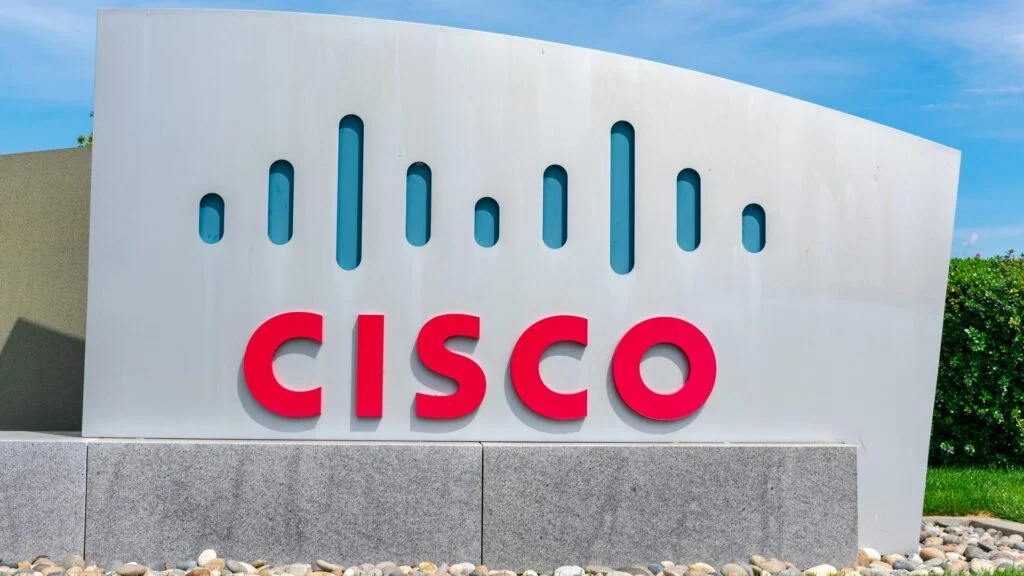Analyst(s): Fernando Montenegro, Krista Case, Mitch Ashley, Alex Smith
Publication Date: March 18, 2025
Alphabet, the parent company of Google Cloud, announced that it has entered into an agreement to acquire Wiz for $32B in cash. This represents both the largest acquisition in cybersecurity and Alphabet’s largest acquisition. The rationale for the deal—which must still go through customary closing conditions—is centered on the reality of enterprises being multi-cloud and the need for improved cloud security outcomes.
What is Covered in this Article:
- Alphabet has announced its intent to acquire cloud security specialist Wiz for $32B in cash. Notably, this represents a nearly 40% increase over the previous attempt to do this deal back in 2024.
- The transaction—which still needs to clear regulatory hurdles—is expected to close in 2026, at which point Wiz will be integrated into Google Cloud.
- The deal centers around enterprises’ need to support multi-cloud environments, with Wiz being one of the leading providers in this space. That said, we see this having a bigger impact on security operations as well.
- Repercussions will also affect several other key vendors in the space, including AWS, Palo Alto Networks, Cisco, Fortinet, and others.
The News: Alphabet has announced it has entered into an agreement with Wiz to acquire the cloud security specialist for $32B in cash, subject to closing conditions. If approved, the transaction is expected to close in 2026, with Wiz then becoming part of Google Cloud. The two companies have indicated that the key driver for the transaction was the growing need for enterprises to support multi-cloud environments.
Alphabet’s Proposed Acquisition of Wiz Shifts Cloud Security Landscape
Analyst Take: Superlatives abound. At $32B—in all cash, no less—this is the largest cybersecurity deal in history and Alphabet’s largest acquisition. It represents a nearly 40% uplift on the $23B figure that was in the cards when this deal was attempted back in 2024. The deal also represents a significant multiple over revenue estimates of $500M-700M for privately held Wiz.
Founded in 2020, Wiz experienced “unicorn” caliber growth, reaching an estimated $100M U.S. in twelve months and a reported $350M U.S. in ARR, serving 45% of Fortune 100 companies in 2024. It is also worth noting the significant market condition changes of this deal from mid-2024 to today, with the U.S. stock market dropping into correction territory, complicating IPO prospects or other exit strategies, which contributed to Wiz passing up Alphabet’s 2024 offer.
Of note, this deal now surpasses Cisco’s acquisition of Splunk, originally announced in September 2023 and closed, coincidentally, exactly a year ago today, March 18th.
An important point to remember as we investigate this deal is that it has not yet closed. Regulatory agencies worldwide will need to comment on this, and while we’re analyzing it as if it will close and expecting it will, that is not completely certain at this point.
Multi-cloud Security As a Key Driver
The deal is centered on the notion of supporting multi-cloud environments. This is a reality for most large organizations as the added pressures of regulatory concerns, AI usage, and attacker methods evolution take hold. Wiz has made significant inroads as a key vendor in the space, indicating that it supports nearly 50% of the Fortune 100. The company had success with an offering that combines ease of use and a broad set of capabilities, covering code-to-cloud, security posture management, and runtime security use cases. Wiz’s offering has broad capabilities, such as data and cloud security posture management and cloud detection and response, coupled with its ability to prioritize risk-based vulnerabilities. It also has capabilities like data classification, role- and attribute-based access control, real-time detection of threats and vulnerabilities, and automated response playbooks.
In addition to Wiz’s strengths in multi-cloud security with enterprises, what role do cloud-native application (CNAPP), software supply chain, and AI security play in Alphabet’s strategy to acquire Wiz? Certainly, Wiz Code, part of their CNAPP platform, fits strategically into Google Cloud’s strengths in cloud-native (Kubernetes) and as a developer platform.
While not the dominant CNAPP vendor, Wiz CNAPP is a strong competitor to others in the category, specifically Palo Alto Networks, CrowdStrike, and Microsoft Defender for Cloud, among many others. Wiz CNAPP and its Software Composition Analysis (SCA) and Software Bill of Materials (SBOMs) capabilities fit well into Google Cloud’s developer-focused offerings, extending security to earlier in the software development lifecycle.
As a newer cloud-native developed offering, Wiz’s agentless and API-centric architectures ease integration and deployment challenges, which plays well in Google Cloud’s developer ecosystem. Google Cloud and Wiz will need to align and remove conflicts between Google Cloud’s own OSV-SCALIBR (Software Composition Analysis Go library) used in software vulnerability scanning and SBOM generation.
From an AI perspective, Wiz was one of the early entrants into AI security with its AI Security Posture Management (AI-SPM), which would again bolster Google Cloud’s positioning in this area. This category puts Google Cloud in competition with Palo Alto Networks, Microsoft, and Orca Security for AI security spending.
Regarding multi-cloud security more broadly, it’s not as if the cloud providers themselves were not already looking at the topic. Google Cloud’s Security Command Center, AWS’ Security Hub, and Microsoft’s Defender for Cloud all support some level of multi-cloud security use cases, usually pulling security data from the other providers. In addition to functionality within their offerings, the cloud providers all support third-party vendors as key partners in their marketplaces, with Wiz being one of the most visible.
Indeed, both AWS and Azure highlight Wiz as a key partner for cloud security, which is usually one of the top categories in their marketplaces. Wiz was certainly a poster child for the AWS marketplace, and it is very likely that AWS is one of Wiz’s largest GTM partners if not its largest. We expect this deal to impact relationships with the other hyperscalers.
More To This Story Than Cloud
That said, we feel that there are deeper considerations to keep in mind here.
First and foremost, Google Cloud, as a cloud provider, has always positioned itself as a key partner for cybersecurity vendors to build on. Palo Alto Networks, for example, last year announced a ten-figure, multi-year commitment to Google Cloud, indicating that Google Cloud would be its primary AI and infrastructure provider. Fortinet, as another example, has also extolled its strong partnership with Google Cloud, including using the environment to host points of presence for its FortiSASE offering. CrowdStrike also announced a similar partnership with Google Cloud as one of its execution environments. And the list goes on. What becomes of this approach and these relationships?
Google Cloud has also made significant investments in security operations, including the acquisition of Mandiant and its many investments in its security operations (née Chronicle) and threat intelligence offerings. We feel that this is a strong motivation for the transaction – indeed, Thomas Kurian’s blog post announcing the deal mentions Mandiant in the very first sentence of the “Why now?” rationale.
This brings us to the impact on security operations: more than Google Cloud being better at “multi-cloud security”—certainly a worthy goal—we feel that this has deeper, possibly profound, ramifications for security operations.
Just last month, we noticed how the partnerships that Wiz announced with Check Point and Cisco presented a “cloud-centric” perspective of security operations as opposed to Palo Alto Networks’ announcement around Cortex Cloud as a more “security-centric” one.
Now, Google Cloud is essentially taking the position—defensibly, in our opinion—that it can be a key option for an enterprise’s core security operations platform. This directly challenges Microsoft Sentinel, Palo Alto Networks Cortex, Cisco Splunk, and many others.
This is bigger than cloud security.
What to Watch:
- First of all, will this transaction close? We currently expect it to but also know that the period between now and adjudication will introduce some level of confusion to the market, prompting buyers to take a more cautious approach to cloud security purchases.
- Major cybersecurity vendors will need to react to this. For Palo Alto Networks and CrowdStrike, for example, does this new direction affect their relationships with Google Cloud as an infrastructure provider and partner? For Cisco and Check Point, do they now look for a new cloud security partner (Orca Security, Aqua, Sysdig, and others come to mind)? For others – Fortinet, Trend Micro, Sentinel One, and many others – does this offer an opportunity to extoll their independence?
- This will also impact cloud providers. How will Microsoft and AWS navigate this increased competition with Google Cloud? What impact will this have on marketplace transactions?
See the Google Cloud press release on the acquisition, the blog post from Google Cloud, and the similar blog post from Wiz.
Disclosure: The Futurum Group is a research and advisory firm that engages or has engaged in research, analysis, and advisory services with many technology companies, including those mentioned in this article. The author does not hold any equity positions with any company mentioned in this article.
Analysis and opinions expressed herein are specific to the analyst individually and data and other information that might have been provided for validation, not those of The Futurum Group as a whole.
Other insights from The Futurum Group:
The Clash of Two Competing Visions for Cloud Security
Cybersecurity Market Shows Vendors Highlighting Platforms
AWS Marketplace Expanding Its SaaS Catalog: Will This Drive the Next Boom?










